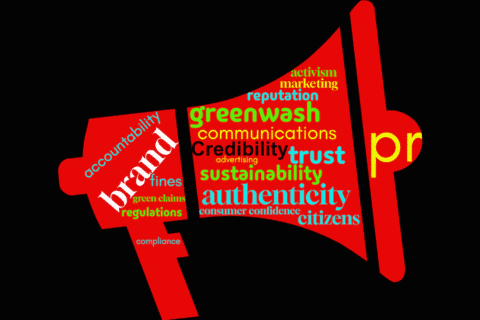Much of the focus for conscious consumerism is understandably on what we buy, not necessarily how we buy it. However, the way you spend your money, literally, can have an impact on the sustainability of your shopping. So, in this SustMeme Collaborative Post, contributed by Lucas Cole, we unpick the net positive potential of payments going digital…
LC: Payments aren’t something we tend to think of very much with regards to sustainability efforts. And yet, the ways in which we have traditionally paid for things can have harmful effects on the environment. Consumption and waste of metals and paper for ordinary cash can add up, and unfortunately newer alternatives don’t seem much better. According to Forbes’s look at the UK’s new currency, the polymer plastic banknotes now in circulation are actually more harmful (in terms of CO2 emissions) than paper notes — despite the fact that they were said to be more recyclable.
This raises the question of whether the ongoing transition toward digital payments may ultimately come with some environmental benefits. In short, will electronic transactions really bring significant, sustainable change?
The most obvious benefit comes from the fact that digital transactions have the potential to more or less eliminate physical cash, and ultimately even credit cards. Right now, cash is slowly but surely receding into the background, but many are still using cards for quick, easy payments facilitated in person by modernised point-of-sale machines.
However, as people grow more used to purely electronic services — which function essentially as mobile credit cards — there is less need to carry even physical cards around. We are quite clearly moving toward a new reality in which there may not even be a need to be issued physical cards in the first place.
This transition will be assisted in part because of the clear benefits to businesses. While it’s a given that electronic transactions can be quicker and easier, FIS Global’s overview of retail payment processing makes it clear that there’s a wider range of perks on the business end.
For instance, businesses adopting digital payment methods can typically reduce costs, boost transaction rates, gain payment-related data and insights, and even expand international transaction activity.
At the same time, there are clear benefits to consumers as well. In part, these come down to convenience and efficiency; digital payments are simply faster much of the time, and they save consumers from having to carry around cards and cash. Additionally however, digital transactions can provide the contactless payment methods that are increasingly becoming a preferred option with consumers, especially in a post-pandemic market.
In fact, when The Financial Brand examined consumer preferences with specific regard to the 2020 pandemic, it was found that evolution toward contactless methods has accelerated, as people seek ways to make purchases with minimal risk. This should only further incentivise adoption off modernised payment methods.
Add all of that up and you have consumers and businesses alike beginning to favour payment methods that can all but eliminate paper, metal, and plastic cash over time — seemingly resulting in clear benefits for the environment.
There are, though, some potential downsides. A past look at Living in a Material e-World here reminds us of the general environmental harm that can come with digital devices, such as the phones, wearables, and POS machines that will comprise new payment systems.
There are also concerns about the environmental impact of cryptocurrency mining, which will come into play if and when cryptocurrencies become a bigger factor in digital payments. But these risks exist on their own. That is to say, for the most part the transition toward electronic transactions is not causing a spread of devices or crypto mining projects that can harm the environment — it is merely benefiting from them.
Overall, therefore, it is reasonable at this point to look tentatively at digital payment as a net positive development for sustainability efforts.
Lucas Cole is a freelance writer and web designer studying for a postgraduate degree in London. His writing primarily covers tech trends, web development, and e-commerce.
SUSTMEME: Get the Susty Story Straight!







